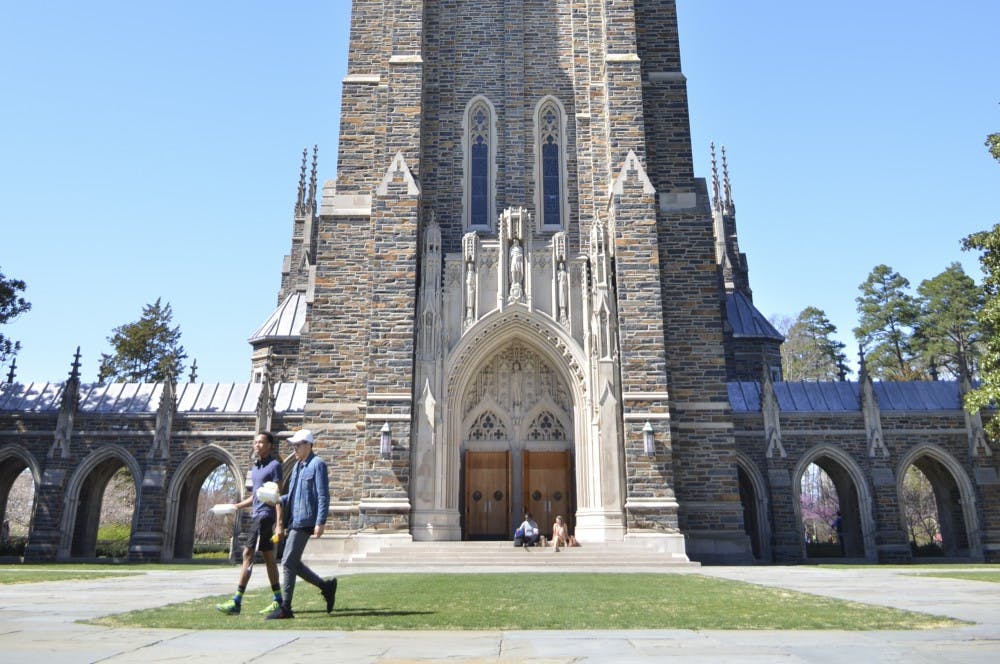During Seaman’s case, further evidence surfaced demonstrating the “no-poach understanding” extended beyond the university health systems. Lucia Binotti, a UNC Spanish professor, filed another lawsuit extending to non-medical faculty that were not covered by the first lawsuit. In her lawsuit, she named Duke as the sole defendant, but also listed UNC as an “unnamed co-conspirator.”
The $19 million settlement in Binotti’s lawsuit covers non-medical faculty at the two schools between Oct. 1, 2001 and Feb. 5, 2018. According to court documents, over 15,700 current and former faculty members at Duke and UNC are eligible for the latest round of payments.
Binotti told The Daily Tar Heel that the payments are a "token of recognition."
"But in terms of going forward, it's actually quite major because that means free competition and the possibility of being hired for a higher salary or being retained at UNC for a higher salary are now just like it should be — a free market," she said. "So, in that sense, it's a great advancement of workers' rights for all of us who were at UNC for all those years in which the no-poaching agreement was in place.”
Altha Cravey, a recently retired UNC professor, echoed support in an email statement to the DTH.
“It's great to see attorneys willing to do class-action lawsuits," Cravey said. "And it's excellent to see these two huge institutions on notice that they cannot do whatever they want, whenever they want.”
Still, neither Duke nor UNC-Chapel Hill admitted any wrongdoing in the settlements of either lawsuit. UNC Media Relations stated that UNC was not a party in Binotti's settlement and declined to comment further.
In Seaman v. Duke University, UNC was part of the settlement because of its role as an actor of the state government. However, the University settled the lawsuit in January 2018 without paying any compensation or admitting wrongdoing. UNC did agree to enter a no-hire agreement, where it cannot engage in illegal no-hire agreements in the future.
However, how the hefty fines being distributed tell us a different story.
Regular faculty members will receive an average of $2,341.19 in compensation, while other faculty positions, such as adjunct or visiting professors, will receive an average of $152.54.
The discrepancies in how much faculty were paid based on their tier brings into question the inequities in faculty hierarchy at UNC and across higher education.
Eric Ensley, a former graduate student and research assistant at UNC, was paid a mere $2.68 for a year of his work.
To get the day's news and headlines in your inbox each morning, sign up for our email newsletters.
“(It’s) an insulting amount, particularly given the long-term damage done by the collusion of the two universities’ whose endowments comprise billions of dollars,” he said in an email statement to the DTH. “The settlement amount was a slap on the wrist to the universities who seem to have committed not only breaches of civil law, but possibly also criminal law."
Generally, Ensley said, graduate students at UNC are generally already paid unfairly.
“Graduate student instructors at UNC make, I believe, less than $16,000 a year, which is only a few hundred dollars over a poverty wage — which most realize the University does intentionally,” he said. “Handing them a check that won’t even pay for a fast food meal denigrates their labor and reminds me how unfriendly and unappreciated UNC is of student and adjunct labor.”
The little amounts that graduate and contingent faculty have been receiving in wake of the massive lawsuit settlement has shown how the University fails to support their workers, even as an R1 institution.
Binotti said that she hears about a lack of financial transparency from faculty and students — something that her settlement might alleviate.
"I really think that this (settlement) contributes to make some of the things that go on at the faculty and administrative levels more visible and more transparent," Binotti said.
And the lack of financial transparency has not only hurt members of the current UNC community, but also discourages incoming applicants, both for undergraduate and graduate programs.
“I think current students should be angry as with each passing year, UNC seems to add another scandal that discredits the University and hurts the long-term prestige of the degrees they will receive,” Ensley said.
“In terms of graduate education, I often advise undergraduates that UNC has many wonderful programs from an academic standpoint, but they should consider other institutions if they aren’t independently wealthy or with other means to support the bare necessities of living — or at the very least look closely at the economic realities of trying to live on small amounts such as these for six or more years.”
@dthopinion
opinion@dailytarheel.com



